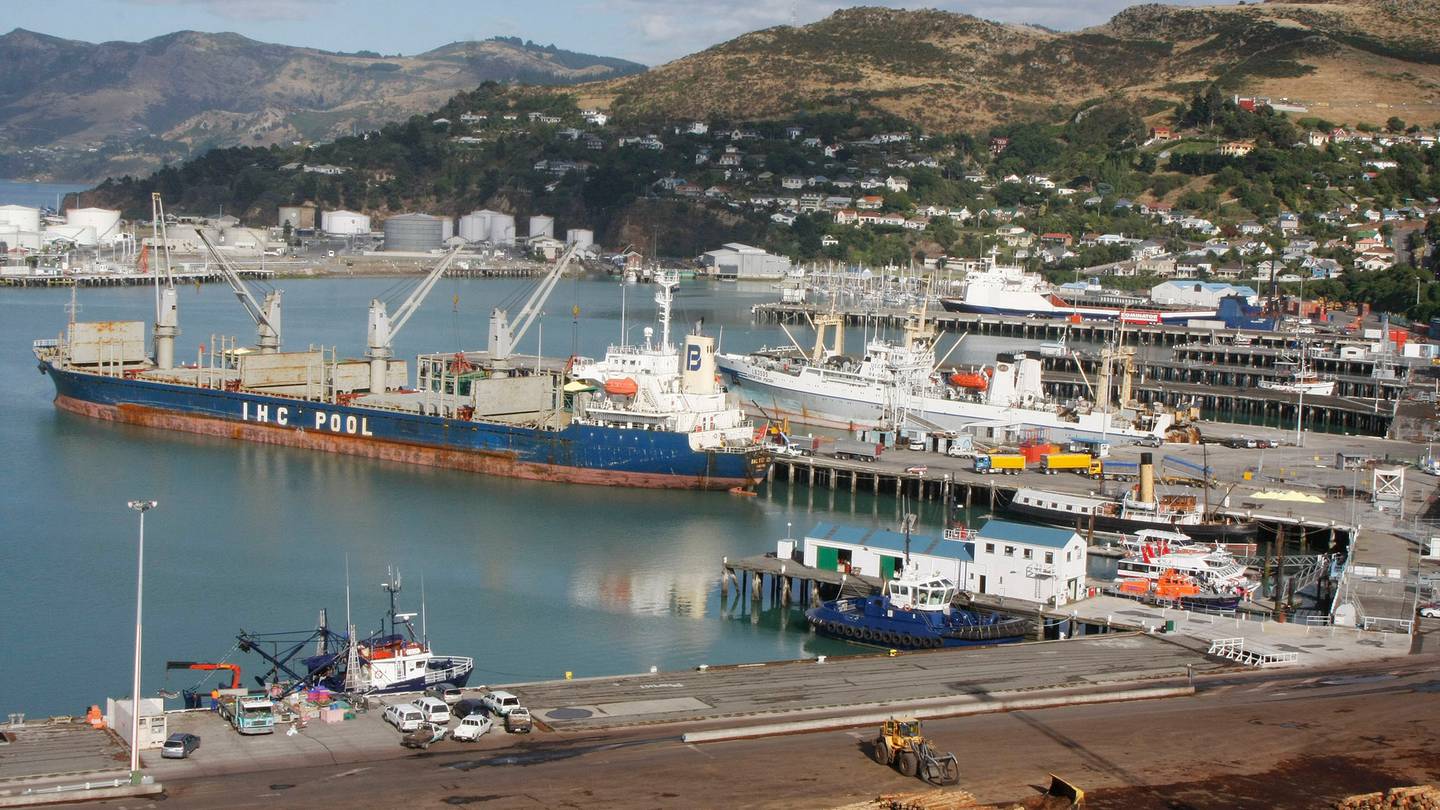
A scathing review of Lyttelton Port Company workers has uncovered a culture of sexism, racism, homophobia, and bullying.
LPC, which is owned by the investment arm of the Christchurch City Council, released an independent review into workplace culture on Wednesday morning, which had contributions from current and former employees, union representatives, the LPC board and its chief executive - 97 people in total.
The review started in July 2020 and was completed in November 2020, and covered the period between 2017 and 2020.
It identified eight problems: a lack of diversity, fear of speaking out, offensive behaviour being normalised, communication breakdowns, a divide between frontline staff and "the office", management voids, lack of career progression and training, and gaps in people monitoring.
One of the big concerns was bullying – with 81 per cent of people who participated in the review bringing it up.
The report, led by Maria Dew QC, found that ranged from rudeness, demanding management, abusive and intimidating language, favouritism of a person or group, isolating behaviour, unfair treatment during a disciplinary matter, threats that new employees must join a union, and humiliating staff over personal matters.
Meanwhile, 42 per cent of female staff who contributed reported sexist behaviour, as well as 31 per cent of males interviewed reporting they had seen sexist behaviour by male employees towards females.
"Senior managers need to be more thoughtful about their language, talk about a 'Barbie' is not appropriate about a female leader in New Zealand, as it sends a message to females that you are undermining women in leadership," said one employee.
"It's pretty regular that female cargo handlers' slightly higher-pitched voices are mocked over the radio publicly," said another.
One report of conduct could be regarded as sexual harassment.
90 per cent of non-European interviewees said racism was an issue – two people said employees had been forced out of their employment because of racism.
"I was an easy target for people to pick on me, sometimes individuals don't realise that the humour is insulting someone," said one person.
"The bilingual signage in the LPC toilets was defaced, with the Māori language blacked out with a marker pen," said another.
There was concern raised around a perceived "lack of transparency" around selection decisions for roles within the company, and apparent homophobia.
"The regular insult is "queer c***" or "homo", people don't realise it's homophobic," said one person.
"There is an underlying sort of current of casual sexism, racism, homophobia there and it's difficult to pinpoint specific occasions because they just happen so frequently," said another.
Mental health and safety concerns were also raised.
The review made 32 recommendations, which included LPC retaining specialist trainers to "design and deliver bespoke LPC Workplace Conduct training", the company sponsoring a regular annual "anti-bullying" event, engaging specialist diversity consultants, improve selection transparency, address immediate conduct concerns, invest in "structured social team building events, cross-team BBQs, sporting events and other activities across work teams".

"The findings of the review are sobering."
LPC will be releasing an action plan to implement the recommendations early in the new year, he said.
"Following that, we will be publicly releasing regular 6-monthly updates on progress on the implementation of the recommendations, as well as further measures we've taken to support change at LPC.
Meanwhile, LPC also released its findings from an investigation into bullying allegations around the death of worker Katrina Hey, who died from suspected suicide on Christmas Day last year.
It was alleged from family members this was the result of serious and sustained bullying during the time she was employed as a container controller between 2013 and 2019.
Nine people were interviewed by barrister Amy Keir as part of the investigation.
Keir said there were elements of Hey's working arrangements that "contributed to a challenging set of circumstances".
She worked in a "high demand environment", and because she only worked night shifts, "she was socially isolated over a long period, did not always have access to the same training support as her colleagues, and ordinary reasonable communications that might have been better handled in person were communicated by email".
Hey "genuinely believed" she was mistreated by her manager and supervisor, although Keir notes that contact with the alleged perpetrators seemed to be relatively limited in the last year of her life.
Keir said with the exceptions of two incidents in 2013 and 2017, the communications she reviewed were "reasonable decisions and communications and did not amount to bullying of Katrina".
"In relation to the two exceptions, although I took the view that they were unkind or unreasonable communications, I did not see evidence of repetition or a specific course of conduct directed at Katrina.
"Indeed, it appeared to me that Lyttelton Port Company acted reasonably and at times, with significant compassion towards Katrina, in circumstances where other employers might have turned their back on her."
Keir concluded there was no evidence to support the allegation of serious and sustained bullying or to link actions by Katrina's manager or supervisor to her death in 2019.
Where to get help:
• 0800 543 354 (0800 LIFELINE) or free text 4357 (HELP) (available 24/7)
• https://www.lifeline.org.nz/services/suicide-crisis-helpline
• YOUTHLINE: 0800 376 633
• NEED TO TALK? Free call or text 1737 (available 24/7)
• KIDSLINE: 0800 543 754 (available 24/7)
• WHATSUP: 0800 942 8787 (1pm to 11pm)
• DEPRESSION HELPLINE: 0800 111 757 or TEXT 4202
• NATIONAL ANXIETY 24 HR HELPLINE: 0800 269 4389
If it is an emergency and you feel like you or someone else is at risk, call 111.












